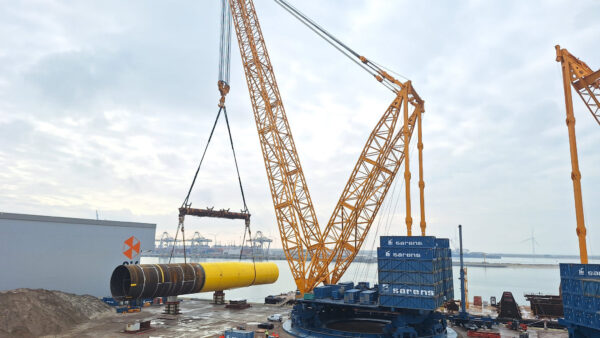Britain’s construction industry faces “inexorable decline” unless radical steps are taken to address its longstanding problems, according to an independent review commissioned by two government departments.
The review highlights the sector’s dysfunctional training model, its lack of innovation and collaboration, and its non-existent research and development culture.
If you buy a new car, you expect it to have been built in a factory to exacting standards, to be delivered on time, to an agreed price and to a predetermined quality. This needs to happen more in construction– Mark Farmer, Cast chief executive
Low productivity continues to hamper the sector, while recent high levels of cost inflation, driven by a shortage of workers, has stalled numerous housing schemes as they have become too expensive to build.
Led by Mark Farmer, chief executive of Cast, a real estate and construction consultancy, the hard-hitting report says construction firms must respond better to the businesses who hire them.
“If you buy a new car, you expect it to have been built in a factory to exacting standards, to be delivered on time, to an agreed price and to a predetermined quality,” said Farmer.
“This needs to happen more in construction, so that the investors, developers or building owners hiring construction firms increasingly dictate the use of modern methods of delivery and invest appropriately in the skills agenda to grow this part of the industry.
“There are more similarities between manufacturing and construction than many people are led to believe and this perception needs to change, starting in the housing market.”
A financial penalty for innovation laggards is one of the more controversial recommendations in the report, published 17 October and called The Farmer Review of the UK Construction Labour Model.
Farmer said clients should pay a levy equal to 0.5% of a scheme’s construction cost if they buy construction services that do not facilitate innovation or skills development.
Farmer, a 25-year veteran of the industry, and former partner at EC Harris, said the industry needs to be far more joined-up with its clients in how it approaches R&D and skills. He also wants ministers to directly intervene in certain areas to ensure many of the issues identified are rectified.
Commissioned by two central government departments – 1) Communities and Local Government and 2) Business, Energy and Industrial Strategy – the report makes 10 recommendations that include:
- Using housebuilding as a pilot programme to drive the use of pre-manufactured construction;
- Wholesale reform of the industry’s existing training body, the Construction Industry Training Board;
- Intervention by government through education, fiscal, housing and planning policy to force the industry to modernise.
With more people leaving the industry each year than joining, the construction workforce is shrinking, the report says, placing severe constraints on its capacity to build – even as the country faces an acute housing shortage, and gears up for major high-speed rail and nuclear power schemes.
Brexit would make the labour shortage even worse if European migrant workers are denied entry, Farmer warned.
Many of the problems Farmer highlights have been flagged up in multiple reviews stretching back to the 1990s, including:
- The sector’s fractured supply chain, labour casualisation and self-employment gives little incentive for contractors to invest in training the labour force;
- Young people don’t view construction as an attractive career choice;
- The sector’s flatlining productivity.
But a state-intervention approach that pushes offsite manufacturing would be new.
“The construction industry is in dire need of change,” Farmer said. “What is clear to me following the nine months spent conducting this review is that carrying on as we are is simply not an option.
“With digital technology advancements pushing ahead in almost every other industry and with the construction labour pool coming under serious pressure, the time has come for action. The construction industry doesn’t have the impetus needed for this change, it requires external action to initiate change.
“Unless we find some way of promoting innovation in construction and making the work less labour intensive and more attractive to new entrants, there’s a very real danger of the construction sector going into an inexorable decline over the next few years.
“I hope this review generates some debate in the sector and all involved can consider their role in safeguarding the industry’s long term health.”
To access Farmer’s review and see industry reaction, click here.
Image via Ispecnaz.com
Further Reading:










